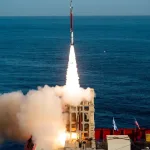Guide Published on Environmental Impact of Israel’s 560 Largest Factories
Ministry of Environmental Protection releases 2024 Environmental Emissions Registry for Israel's largest factories. Decrease in major pollutants, increase in
Jerusalem, 28 August, 2025 (TPS-IL) — The Ministry of Environmental Protection published the Environmental Emissions Registry (EER) for 2024 of the 560 largest factories in Israel and the national inventory data of air emissions.
The EER includes comprehensive information about pollutant emissions into the air, sea, land, and water sources from factories and major polluters. The Ministry of Environmental Protection has been publishing the EER every year since 2012.
Key findings include:
Decrease in emissions of major pollutants
Following the decrease in the use of coal for electricity generation, a trend of reduction in emissions of nitrogen oxides and sulfur in the NPP continues (6%-13%).
Increase in greenhouse gas emissions
Increase of 2% compared to 2023, carbon dioxide, methane and mainly fluorine gases (a sharp increase of 30%) due to a temporary order for the war on iron swords. The Montreal Protocol implementation regulations allow the import of refrigerant gases for security purposes or to protect human life.
























